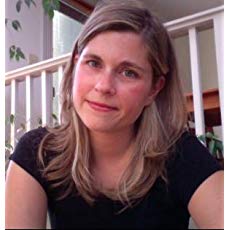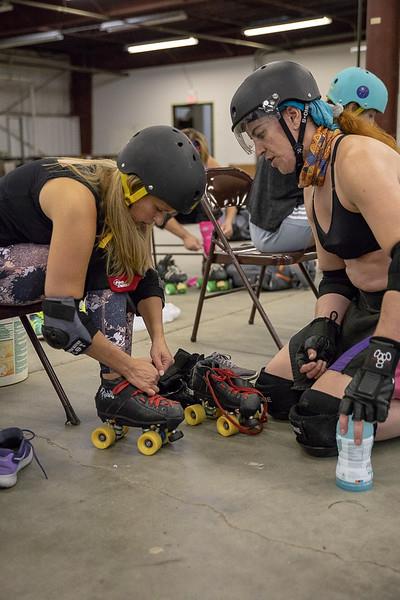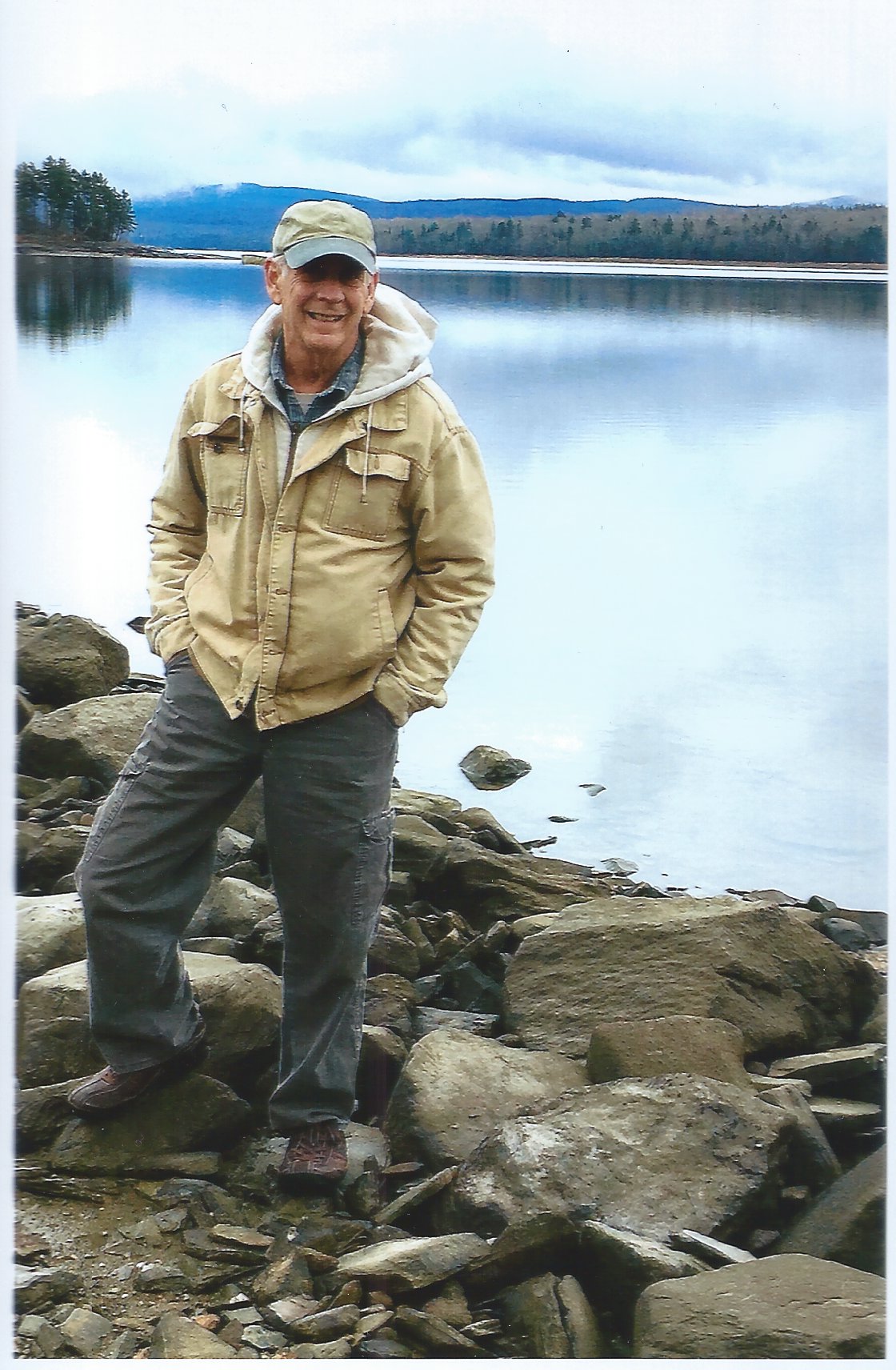Faculty Spotlight: Katherine Towler
Katherine (Katie) Towler is an author and creative writing teacher and currently a faculty member in the Mountainview MFA program. Her first book, Snow Island, was a a Barnes and Noble Discover Great New Writers title and her latest book, The Penny Poet of Portsmouth, was named a Best Book of 2016 by Entropy Magazine, Longreads, and Book Riot. She was kind enough to answer some questions about her books and her writing process, as well as give some useful advise for new writers.
—WL
When did you first realize you wanted to be a writer?
Like most writers, I was a reader before I was a writer, and it was being a passionate reader that made me want to be a writer. By the age of eight, I was spending hours on the couch reading. My younger sister complained throughout our childhood that she couldn’t get me to go outside with her because I never wanted to put down the book I was currently reading. Books were my refuge and my friends, my transport to other worlds, my window on what was possible in life. With a good book, I was never alone. Books made me forget the things that plagued me as a child, like gym class. When I started writing, I found that writing was a similar experience of leaving common life behind and being absorbed by an act that felt so vital and alive. I started writing poems when I was 10 and shortly after that began carrying a notebook around with me which was a writing journal of sorts. When I was 13, I declared I was going to be a poet when I grew up, though I turned out to be more of a prose writer than poet.
Who are some authors who have inspired you?
An early book that completely captivated me as a young reader was Jane Eyre. I still love the Brontes. I am inspired by much of what I read, including the work of my students. It is endlessly fascinating — and challenging and inspiring — to see how other writers create real worlds and compelling characters, and how they use words. I learn from reading as widely as I can (poetry, fiction, nonfiction) and encourage anyone who wants to write to do this. You can learn so much from reading different genres and writers whose concerns are far from yours. To further answer your question, some of the writers whose work has most stayed with me over the years and guided me are Willa Cather, Henry James, Alistair MacLeod, Edna O’Brien, Alice Munro, Virginia Woolf, Marguerite Duras, Edith Wharton. And then there are the poets and memoirists, but I’ll stop with this fiction list.
Your debut novel, Snow Island, the first book in a trilogy, tells the story of Alice Daggett, a sixteen-year-old girl struggling with the sudden death of her father. How did the idea come to you? Also, how long did it take to complete?
In the late 1980s, I spent a couple of months one spring living on my own on an island in the center of Narragansett Bay. The year-round population was 125 people and 300 deer. It was a strange little isolated community. I was captivated by the place — how quiet and empty it was, and how nothing ever happened (except the arrival of the ferry and the mail). I was particularly intrigued by the people who had chosen to live there, many of them clearly drop-outs from life as most Americans know it. Today things are different. You can be connected to the world via the internet from almost anywhere. It’s harder to get lost. But back then, the isolation on the island was real and profound.
One of the people who most intrigued me was the woman who ran the island store. She was also the postmistress and the manager of the water company. She was a tough character in her seventies who had lived on the island her entire life and had managed to get married and divorced three times without leaving the place. I wondered what she was like as a girl and what it was like for her to grow up in this insular community. She became the inspiration for my main character, Alice Daggett, in the first volume of the trilogy.
I started out writing a short story about Alice as a teenager. I planned to write a collection of stories that would span the 20th century and have a running theme of the different wars and how the island community was impacted by them. Alice couldn’t be contained to a short story, though, so I turned her story into a novel and then, having drafts of the other stories still hanging around, turned them into the next two volumes of the trilogy. It took me eight years to write Snow Island. I wrote a bit faster with the next two volumes, but the whole project, including publication time, took nearly 20 years. I had no idea what I was getting myself into.
What are some of the lessons you learned completing that first book?
Probably the biggest lesson I learned was that it takes as long as it takes. Each book has its own life, each writer her own process. I revised extensively, often chapter by chapter. The craft books I read back then all advised writing a complete draft straight through without stopping, but I was unable to do this. I kept going back and making changes. I couldn’t go forward until I had revised the first chapters over and over, and then I often had to go back and revise them again. My writing process was my dirty secret. I was so obviously, it seemed, writing a novel the wrong way. What I realized eventually is that there is no “wrong” way, there is only your way. Whatever it takes to finish your book is what it takes. I learned plenty of other lessons from writing that first book about pace and voice and dialogue and structure, but the most important thing I ultimately learned was to trust my own process.
Tell us more about that writing process. Are you an outliner? Do you have an idea of how the whole story will go or is your writing more open-ended?
My writing tends to be more open-ended. I don’t outline. I carry the idea for a story around in my mind for a long time. The shape of it keeps morphing and changing. I have a plot of sorts, though mostly what I have are a setting and characters. These come first for me. My writing has always been strongly rooted in place. I need a sense of place to anchor me imaginatively and a compelling cast of characters. I need to know my characters as real and complete and believable before I can get them to act. Plot tends to be the last thing I think about.
With nonfiction, it’s different, of course. If you are writing a memoir, you have the outline of the story given to you, but you still need to uncover the real story. Developing voice and character (your own and those you may portray in the memoir) is significant work that must be done with a memoir as it must be done in fiction.
Your latest book, The Penny Poet of Portsmouth: A Memoir of Place, Solitude, and Friendship, is about your friendship with the late poet Robert Dunn, as well as a meditation on an artist’s connection to a place. What led you to write this book?
Robert Dunn was an unusual character who lived most of his life in Portsmouth, NH. He rented a room in a house close to downtown from an elderly woman and did not own a car, telephone, television, or, when they came along, computer. He was a brilliant thinker, a wonderful poet, and a voracious reader. He sold his little hand sewn books of poems on the street for a penny. I got to know Robert, to the extent that anyone got to know him (he was a very private and somewhat solitary person), when I moved to Portsmouth in 1991, living by chance in the house next door to his. I admired Robert tremendously for existing so completely outside the system. His life was performance art of a sort. He was one of the most principled people I have ever met. He owned next to nothing and chose to live largely without money. This freed him to devote his time to writing and reading and thinking.
At the end of Robert’s life, when he was critically ill, I became involved in helping to care for him. The choices he had made, which I had so admired in the past, looked different now. He was isolated and had no resources. He was forced to rely on others when he didn’t want to. For some reason, he relied on me more than anyone else and essentially appointed me his next of kin in Portsmouth. I went through an intense experience of being with him when he was close to death, thrust into the role of a family member. After his death, I needed to write about this experience in order to process it and understand it.
As the book evolved, it became a book about me as much as it was a book about Robert and our friendship. I ended up writing about the choices I have made as a writer and how Robert challenged me in my thinking about those choices. I wanted, too, to write about Portsmouth, a city that has changed so much since the early 1990s. Robert was emblematic of the “old” Portsmouth, a rough around the edges port town that embraced characters like him. I wanted to capture that Portsmouth, the place I so loved before money and gentrification took over in a big way.
As a writing teacher, is there any advice you would like to give students, something that they should always keep in mind while writing?
Don’t be in a hurry. Let the writing take the time it needs to take. Build in time for the work to evolve. This may mean writing a draft of a novel, then letting it sit for a year before looking at it again. Time spent thinking about a piece of writing, or not thinking about it at all, just letting it quietly percolate somewhere in the back of your mind, can be as important as the actual hours at the desk. Not writing can be just as important as writing. You want your imagination to remain nimble, capable of going to unexpected places. You want to be able to surprise yourself and the reader. If you force the writing, if you push yourself to finish that draft because it simply has to be finished by tomorrow, you can become too cramped in your thinking and, hence, in your writing. Do everything you can to free yourself. Maybe this means taking frequent walks, meditating, doing yoga. Maybe it means taking trips. Maybe it means having other passions that completely absorb you, so for days or weeks you forget the writing entirely. Whatever it is, pay attention to giving yourself and your writing the freedom to grow and change, to go anywhere, to be fluid, to emerge. Allow yourself to be anyone on the page.
K. Towler [credit: JONATHAN WIGGS/GLOBE STAFF]
Last thing: Anyone who knows you, knows you to be a dedicated birdwatcher. How did you get into birdwatching and what do you love most about it?
I started paying more attention to birds when I went to Florida for the first time about 20 years ago. My husband and I signed up for a bird walk at a wildlife refuge, thinking, sure, we like birds. The guide put her two thousand dollar binoculars around my neck and said, “I want you to use these.” Smart guide. She knew that if I saw the birds through those brilliant lenses, I would be hooked. I was.
Bird watching is very meditative. You walk slowly and must train your senses to be acutely aware of what is around you. You must listen for the songs and watch for the slightest signs of movement in leafed-out trees. When I go bird watching, I forget myself entirely. It sometimes feels miraculous. My petty complaints are gone, my stupid preoccupations, my doubts and regrets. The endless clock of life, the list of things to be done, disappears. Birding is similar to writing in many ways. It’s entirely absorbing, a “flow” state at its best. But birding takes me outdoors, something I find increasingly essential for my sanity these days. It’s an antidote to all that time spent in my head writing. For me a perfect day contains both — a morning at the desk and an afternoon out walking and looking for birds. This makes me something of a renegade birder, since the best birding is often at dawn, and birders pride themselves on being out by first light, but I can get out early on the weekends when I take a break from writing. Spring migration is currently under way, and I am watching a Baltimore Oriole through my kitchen window. What a creature of exquisite beauty. The number and variety of bird species is staggering. There are over 10,000 species worldwide. I will never get to them all, but I want to see as many as I can.




![K. Towler [credit: JONATHAN WIGGS/GLOBE STAFF]](https://images.squarespace-cdn.com/content/v1/543d9b11e4b0847bb28295dc/1558047391105-9DLM4FMLCMGVFG7WHZ4D/KT.jpg)














